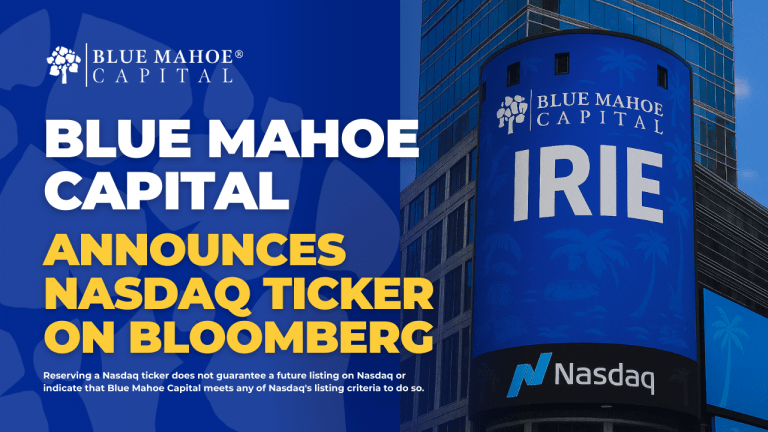Our two oldest children are 8 and 7. I started them investing at 5 years old with their first money from the “Tooth Fairy”. This year I opened custodial accounts for them in Stash, an app that has impressed me with it’s ease of use and options for investors, from those who are just learning to those who already have an an investment philosophy they follow.
Our boys spend a decent amount of time asking me what I do, hearing me on the phone with investors and I share all my stock purchases for Blue Mahoe Capital with them, including the reasoning. They are young but they are picking up things here and there.
I started paying them to help me shoot my videos for social media with the agreement that 20% of their money needed to be invested and any additional money invested would be matched dollar for dollar by me (they did buy some Lego but they invested more than the 20%). They were also told that they can’t touch the portfolio until they each turn 18 years old. They invested over time so that I could teach them the importance of Dollar-Cost Averaging.
Teaching your children about delayed gratification and compounding is important to me. My parents taught me those values and I intend to pass them on to mine.
I also invested the same amount of money alongside my kids and explained my approach to them so that at the end of the year, we could review how each portfolio performed and see the differences in real-time.
I think that you will find their reasoning behind each purchase quite interesting.
The 7 y/0
He is definitely more conservative but he is also newer to this and so he chose the following:
- Berkshire Hathaway — 26% of his portfolio (He hears me talk about Buffett all the time, sees the annual reports I have and decided he should buy)
- Gamers FTW! — 17% of the portfolio (He is into Minecraft and felt that he should own gaming stocks)
- Long-term Mix — 10% of the portfolio (He doesn’t feel comfortable picking too many individual stocks yet)
- Dell — 5% of the portfolio (Purchased after every child in the school district was given a Dell laptop when school went virtual during the pandemic)
I told them they just needed to beat inflation so think 3% and that 8% would be a solid return with anything in double digits being amazing.
His Performance since purchase:
- Berkshire Hathaway — +6.92%
- Gamers FTW! — +20.35%
- Long-term Mix — +12.58%
- Dell — +14.09%
He is pretty excited! I did make sure to explain that it’s still early in the game and next year isn’t guaranteed to be up so keep investing over time.
The 8 y/o
More aggressive because he has read more about investing and is a real sponge.
- Long-Term Mix — 10% of his portfolio
- Microsoft — 9% of the portfolio (“Mommy uses a Surface for school, you own an Xbox and we use Windows at school” was his reasoning.)
- Apple — 10% of portfolio (“All of you have iPhones, iPads, a Mac and an Apple TV”)
- Walt Disney — 11% of the portfolio (“We live by Walt Disney World, have annual passes and subscribe to Disney+ which is growing, has lots of stuff to watch and The Mandalorian Season 1 was awesome!”)
- Netflix — 9% of the portfolio (“We all use Netflix in the house”)
- Amazon — 9% of the portfolio (“I keep seeing Amazon Prime boxes show up at the house and in the neighborhood so obviously people use it a lot”)
You can’t fault his reasoning, especially after I have taught him to always own shares in the companies you spend money with because you may as well get some back as a dividend.
His performance:
- Long-Term Mix — +12.56%
- Microsoft — +6.91%
- Apple — +15.15%
- Walt Disney — +35.78%
- Netflix — +6.85%
- Amazon — +2.78%
He couldn’t believe his Disney returns, especially since it is 11% of his portfolio.
My portfolio only made trades when the kids did theirs (it’s not my actual personal portfolio). My holdings are returns are extremely concentrated because I firmly believe in owning pieces of great companies, domiciled in strong long-term growth industries and run by capable management. If I have such conviction then I should own as much as I can. I am not as worried about concentration since I have fewer eggs to watch and fewer baskets to watch over.
- Amazon — 27% of my portfolio (Same reason as my 8 y/o plus stay at home meant more Prime Video viewership which increases stickiness of Prime membership and AWS was only going to get bigger with remote work and the forced digital transformation)
- Netflix — 26% of the portfolio (Stay at home and pricing power)
- Walt Disney — 20% of the portfolio (I bought before my 8 y/o when markets were scared about lock down but I expected Disney+ to explode in subscribers and theme parks will come back with a vengeance since COVID-19 is temporary)
- Domino’s — <1% of the portfolio (I thought stay at home and ordering food meant more pizza)
- Microsoft — <1% of the portfolio (new Xbox was to be released in November and cross play would grow Windows share of gaming market, eSports growing rapidly and PC is the leader)
My performance:
- Amazon — +5.31%
- Netflix — +3.61%
- Walt Disney — +60.6%
- Domino’s — +0.41%
- Microsoft — +11.40%
Our 8 y/o was shocked at my Disney performance and ho much of a difference in returns timing can make so it was worth it for his learning. The 7 y/o is a bit puzzled at how concentrated my portfolio is and that it has no funds in it but I had to explain that I was super aggressive because it’s not my real portfolio. I do have funds in there (although it is quite concentrated as well and so is the portfolio for Blue Mahoe Capital itself).
This was a useful year to teach my kids that even when the world seems to be melting before their eyes, money can be made if you do the research, participate in the markets and ignore all the doomsayers.
Mission accomplished.
I have also now been told that they each deserve a year-end bonus for doing so well so that they can invest more money. I get what I deserve.
Please ensure that you get your kids to invest early, invest often and build good long-term financial habits. Also do the same for yourself because it’s never too late to start. “Find a role model, get their recipe and then don’t change the recipe” as my mentor and coach, billionaire Michael Lee-Chin always says.



